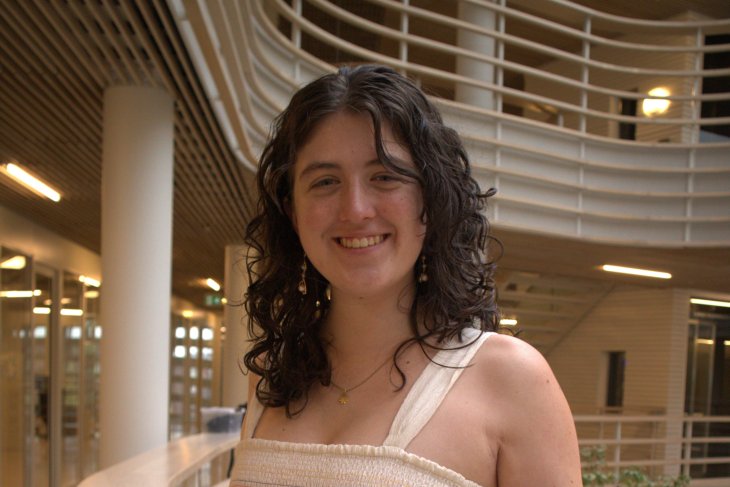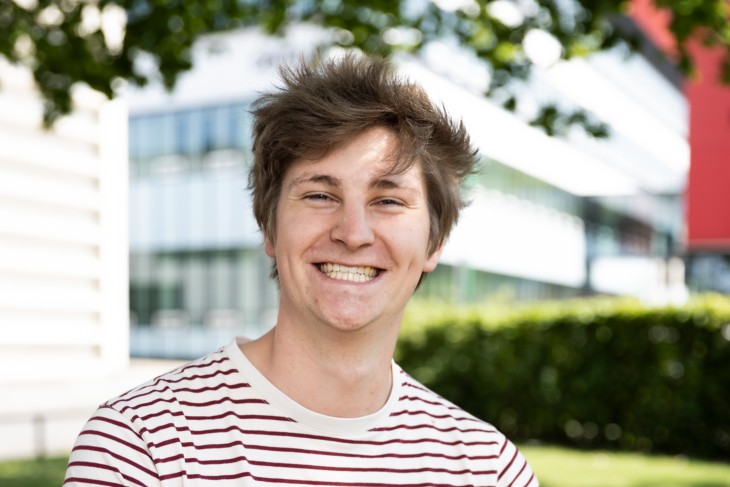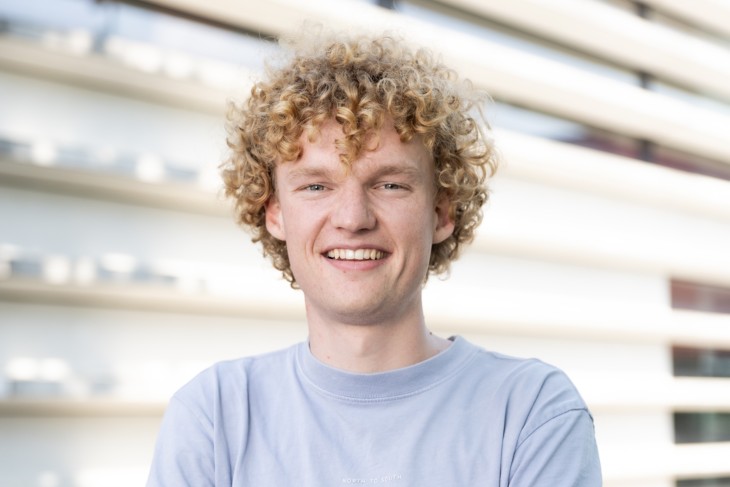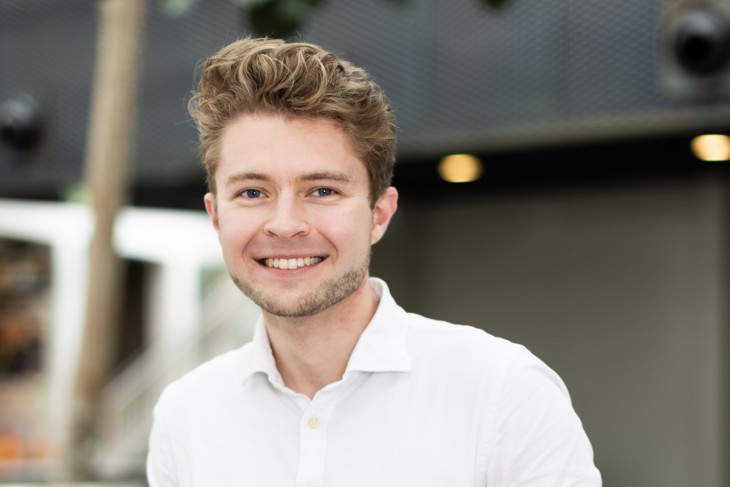“While doing my Bachelor’s in Biochemistry at the University of Texas at Austin, I took a renewable resources course, which inspired me to do something more environmentally related. Later, when I was looking for a Master’s degree in Europe—I wanted to be closer to my family in Romania—I found the Master’s in Water Technology at the University of Twente. Can you find a place that knows more about water than the Netherlands? I don’t think so!
What made me choose this programme is that it’s a joint degree by the University of Twente, Wageningen University, and the University of Groningen: this is incredibly valuable because you absorb knowledge from research on membrane science, microbiology, and process engineering at these three universities.
European Centre for Sustainable Water Technology
You study at the heart of Dutch sustainable water technologies: the Water Campus in Leeuwarden. It’s awesome because you not only focus on scientific research but also work on real-world industry cases; besides, you’re immersed in water technology innovations. For instance, we have vacuum toilets, a new invention that uses less water. Also, every week, there are presentations from PhD students and professionals from companies and other knowledge institutes about the latest developments and challenges in water scarcity, water pollution, and sustainable water management.
Real-life water problems
At first, I thought the Master’s was about oceans and seas, but you delve into wastewater and fresh water supply, among others. For example, you learn to recover nitrogen, phosphorus, and sulfur from wastewater, so it can safely go back into the environment.
The best part is the projects for companies. One project I'm working on with my group is for a plastic recycling company that processes various waste items, such as plastic bottles. They sort and wash the plastics using drinking water, but they need to reduce their water consumption. Our task is to develop a method to recirculate and clean their dirty water, thus reducing their reliance on fresh water.
We're considering membrane bioreactors, which work really well but are expensive. So, we might explore other options like diluting wastewater with fresh water to make it good enough for industrial use. There needs to be a balance: we want the water to be clean enough for industry but without using too much fresh water.
I’m excited to start my internship soon at a wastewater processing company in Leeuwarden, where I'll be examining a nanofiltration process to see what happens if they recirculate the water that comes back into the system. This is important because right now, the water they produce is only good enough for irrigation, like watering grass, but it isn’t drinkable. They hope that by recirculating it, the water will reach drinking water quality. I can't wait to start this project and see the results firsthand.
Student life in Leeuwarden
Leeuwarden has a beautiful Dutch charm, and while it isn’t like the Randstad, it used to be a European Capital of Culture, and it offers many cultural activities and events. Also, the student life is vibrant with pubs and social gatherings. It’s a lovely city: large enough to have everything you need, yet small enough to feel welcoming and accessible.
I’m considering working in research and development once I graduate. Before, I thought industry and academia operated in separate worlds. Working on assignments for companies has changed my perspective. Also, studying at the Water Campus, where I'm surrounded by the actual applications of what I’m learning, has shown me how industry professionals and academics work seamlessly, and I’ve gained knowledge and skills from both.”




